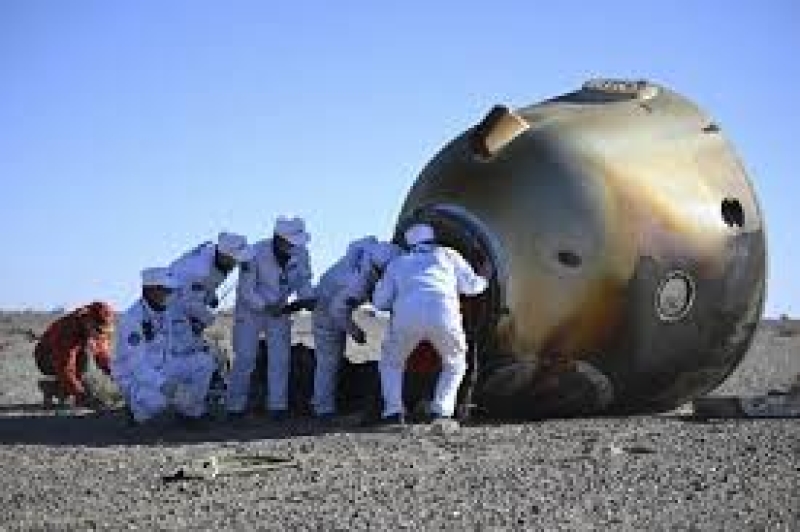- Hadi is no more, state mourning on Saturday: CA |
- Bangladesh capital market falls; weekly turnover lowest |
- Sharif Osman Hadi No More |
- Tarique Rahman to Return Home With Daughter on Dec 25 |
- ILO praises Bangladesh’s labour reforms, new milestones |
3 Chinese Astronauts Return After 6-Month Space Mission"

After spending six months aboard China’s space station, three Chinese astronauts safely returned to Earth on Wednesday.
Their landing capsule made a gradual descent using a red-and-white parachute and touched down in Dongfeng, located in northern Inner Mongolia near the Gobi Desert. The return was postponed by a day due to poor weather conditions, including strong winds and limited visibility, which are common during the spring sandstorm season in the region.
Astronauts Cai Xuzhe, Song Lingdong, and Wang Haoze had been stationed at the Tiangong space station since their launch in October. On Tuesday, they officially handed over operations of the station to a newly arrived crew.
The Shenzhou 20 spacecraft, which delivered the new crew, also brought scientific equipment for research in space life sciences, microgravity physics, and technological advancements for the space station.
Tiangong, meaning “Heavenly Palace,” represents China’s growing role in global space exploration. Constructed entirely by China following its exclusion from the International Space Station over U.S. national security concerns, the station enables long-term scientific research in orbit.
Operated by the People’s Liberation Army, the Chinese space program continues to expand. During their mission, the astronauts contributed to the station's development and research activities. Notably, Cai and Song completed a record-setting nine-hour spacewalk, according to China's space agency.
China’s ambitions in space are rapidly advancing. The country has already deployed a rover on Mars and landed a probe on the moon's far side. It plans to send astronauts to the moon before 2030, reports UNB.

